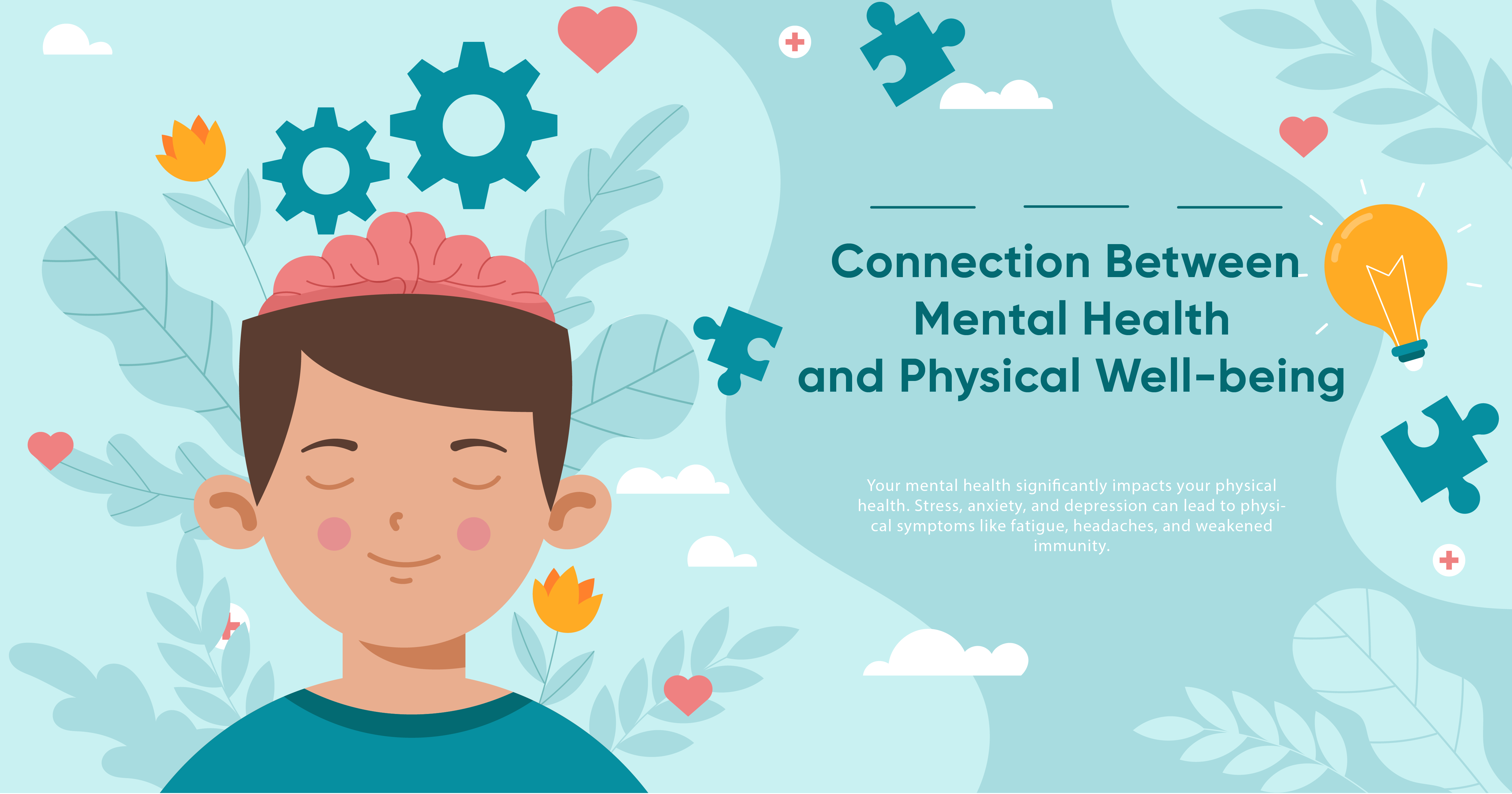Introduction:
The link between mental health and physical well-being has been a subject of increasing interest in both medical and psychological research. The growing body of evidence suggests that the mind and body are not separate entities but rather intricately connected, with each influencing the other in significant ways. This understanding has led to a more holistic approach to health care, where mental and physical health are seen as interdependent components of overall well-being. A thorough examination of this connection reveals that mental health issues can manifest in physical symptoms, and physical health problems can have profound effects on mental well-being.
The impact of mental health on physical health is well-documented. For instance, chronic stress, anxiety, and depression are known to contribute to the development of various physical ailments, such as heart disease, diabetes, and autoimmune disorders. These mental health conditions can lead to changes in behavior, such as poor diet, lack of exercise, and substance abuse, which further exacerbate physical health problems. Conversely, chronic physical conditions can lead to mental health issues, creating a vicious cycle that can be difficult to break. This intricate relationship highlights the importance of addressing both mental and physical health in a comprehensive manner.
The Role of Mental Health in Aesthetic Wellness:
“The connection between mental health and aesthetic wellness plays a crucial role in overall well-being. Mental health can significantly influence how individuals perceive their appearance, which, in turn, affects their self-esteem and confidence. For many, aesthetic treatments are not just about enhancing physical appearance but also about feeling better mentally and emotionally. When mental health is in balance, individuals are more likely to have a positive outlook on the outcomes of aesthetic procedures. This positive mental state can enhance satisfaction with the results, leading to a more profound sense of well-being.
On the other hand, individuals struggling with mental health issues such as anxiety, depression, or body dysmorphic disorder may have a distorted view of their appearance. This can lead to unrealistic expectations or dissatisfaction with aesthetic outcomes, regardless of the procedure’s success. Therefore, addressing mental health alongside aesthetic wellness is essential. By doing so, individuals can achieve a more harmonious balance between their inner well-being and outer appearance, leading to long-lasting satisfaction and improved quality of life. Integrating mental health support into the aesthetic journey ensures that the benefits of treatments extend beyond the physical, fostering a more holistic sense of well-being.” – Dr. Darren Smith, Founder at Darren Smith Md
The Impact of Nutritional Supplements on Mental and Physical Health:
“The role of nutrition in maintaining mental and physical health cannot be overstated. A balanced diet rich in essential nutrients supports brain function, mood regulation, and overall physical well-being. However, in today’s fast-paced lifestyle, it can be challenging to meet all nutritional needs through diet alone. This is where supplements can play a vital role in bridging the gap, supporting both mental clarity and physical vitality.
Research has shown that certain supplements, such as omega-3 fatty acids, vitamins, and minerals, can positively impact mental health by reducing symptoms of depression, anxiety, and cognitive decline. At the same time, these supplements contribute to physical health by enhancing immune function, reducing inflammation, and supporting cardiovascular health. By incorporating the right supplements into one’s routine, individuals can support both their mental and physical well-being, ensuring a holistic approach to health that addresses both mind and body.” – Carl Panepinto – Head of Marketing at Sealions
The Role of Regular Exercise in Enhancing Mental and Physical Health:
“Regular exercise is a cornerstone of maintaining both mental and physical health. Engaging in consistent physical activity has been shown to reduce symptoms of depression and anxiety, boost mood, and improve cognitive function. Exercise stimulates the release of endorphins, the body’s natural “feel-good” chemicals, which help in alleviating stress and promoting a sense of well-being.
In addition to its mental health benefits, regular exercise plays a crucial role in enhancing physical health by improving cardiovascular fitness, strengthening muscles, and supporting weight management. Whether through aerobic exercises, strength training, or mindfulness-based practices like yoga, incorporating regular physical activity into one’s routine can lead to a balanced and fulfilling lifestyle. This holistic approach to fitness not only supports physical well-being but also fosters mental resilience, contributing to overall health and happiness.” – Alex Constantinou – MD at The Fitness Circle
The Influence of Medications on Mental and Physical Well-being:
“Medications play a significant role in managing both mental and physical health conditions, offering relief and improving quality of life. For those dealing with mental health issues such as anxiety, depression, or mood disorders, prescribed medications can help regulate brain chemistry, alleviate symptoms, and restore balance. When appropriately managed, these medications can be life-changing, helping individuals regain control over their mental health and lead fulfilling lives.
However, it is essential to recognize that medications can also have physical side effects, which may impact overall well-being. Understanding the balance between mental health benefits and physical health risks is crucial in managing treatment effectively. Consulting healthcare professionals, monitoring for any adverse effects, and adjusting treatment plans as needed can help ensure that medications support both mental and physical health. This balanced approach underscores the importance of considering the full spectrum of well-being when addressing health concerns through medication.” – Tiffany Payne, Head of Content at PharmacyOnline.co.uk
The Connection Between Oral Health and Overall Mental and Physical Well-being:
“Oral health is a crucial yet often overlooked aspect of overall well-being, with direct links to both mental and physical health. Poor oral hygiene can lead to various dental issues such as gum disease, cavities, and tooth loss, which can have significant physical consequences. These issues can also impact self-esteem and mental health, leading to social anxiety, depression, and a decrease in quality of life.
Moreover, the connection between oral health and systemic health is well-established, with dental issues potentially contributing to serious conditions like heart disease, diabetes, and respiratory infections. By maintaining good oral hygiene, individuals can not only prevent these physical health problems but also enhance their mental well-being, promoting a more confident and fulfilling life. This holistic approach underscores the importance of integrating oral health into the broader understanding of mental and physical wellness.” – Dr. Niall Vallely, Principal Dentist and Co-Owner of 3Dental
Conclusion:
The connection between mental health and physical well-being is complex and multifaceted. Mental health issues can have a significant impact on physical health, leading to the development of chronic conditions and unhealthy behaviors. Similarly, physical health problems can exacerbate mental health issues, creating a cycle that can be difficult to break. A holistic approach to health care that addresses both mental and physical health is essential for promoting overall well-being and improving outcomes for patients. By understanding the connection between mental health and physical well-being, individuals can take steps to improve their health and enhance their quality of life.





